Long-awaited Aquaculture Act helps score political points, but fails to provide clarity. Will Trudeau actually seek salmon net pens’ removal?
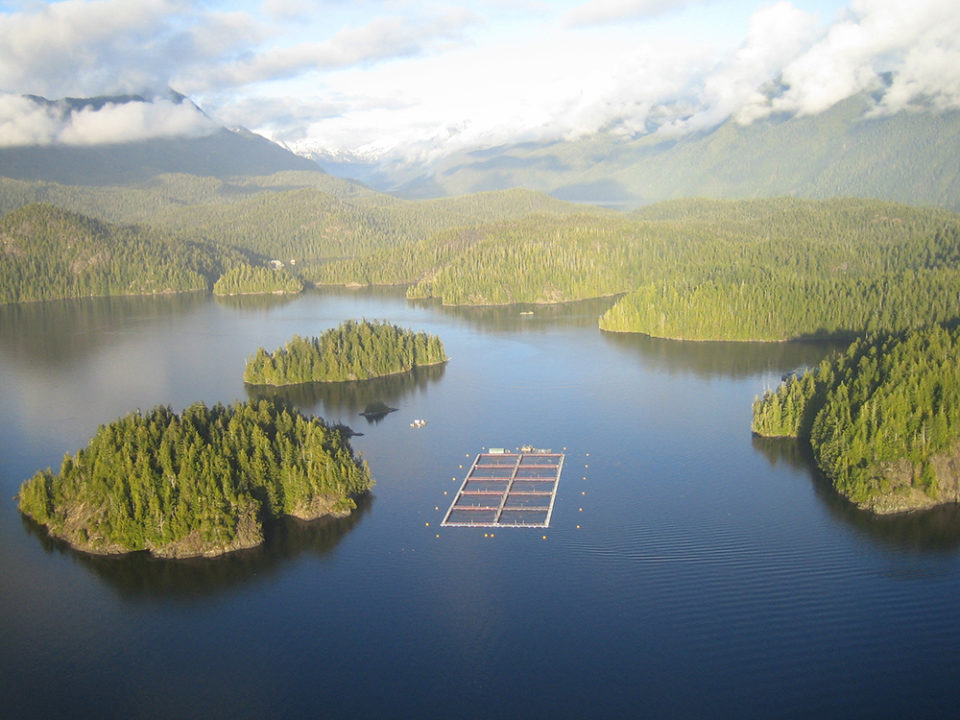
A few years before he took office, Canadian Prime Minister Justin Trudeau once famously boxed against a conservative senator on live television – and won. This fall Trudeau and his Liberal Government picked another fight, this time against the salmon-farming industry, signaling an intent to remove all of its net pens – more than 100 farm tenures – from British Columbia’s coastal waters.
The Canadian Liberal Government’s Aquaculture Act, released in September, seeks to transition the industry to closed-containment systems by 2025. The announcement left the industry feeling anxious and worried about the future, while some stakeholders say they were completely left out of the process.
“If this happens it will be a death knell for salmon production in Canada,” said Tim Kennedy, president and CEO of the Canadian Aquaculture Industry Alliance. “It was a reckless announcement before the election, a political decision made to win last-minute votes, and it’s caused a lot of stress in the salmon farming community.”
Prior to the election, the industry was on a “rational pathway” led by Minister Jonathan Wilkinson and the Department of Fisheries and Oceans, he added.
“The industry, environmentalists, First Nations and governments were working together to plot a reasonable path forward and a close-to-final draft had been established, pointing clearly toward a hybrid solution for the short to mid-term future,” he said. “We had discussed salmon farmers having super-smolts, or more time on land in hatcheries for smolts and less time in the water in pens for adult salmon. In no way were our discussions pointing toward closed containment as a viable option for the short- to mid-term future.”
First Nations left out?
The government’s announcement of its Aquaculture Act makes two assumptions: first, that there is scientific evidence that wild salmon are negatively impacted by salmon farms; and second, that closed containment is a viable technology. Both are erroneous, said Kennedy.
“There’s no science behind the first assumption, and there’s no evidence as yet that closed containment is viable for large-scale production of salmon. We need another 10 to 15 years to really prove the technology and process for closed-containment and the issues it presents, including energy use, fish welfare, emissions and how closed-containment effects taste and flavor of fish. There is not one profitable large-scale land-based facility producing adult Atlantic salmon in the world,” he stated.
Should the Aquaculture Act come into effect, it will radically affect the viability of salmon farming in remote coastal communities in British Columbia, he added. Seventy-five percent of all salmon production in the province is covered by agreements with First Nations communities, and 20 percent of all employees in the province’s salmon industry are indigenous, according to figures from CAIA.
“We really want to see these coastal communities thriving, indigenous people working in our sector and leading it,” Kennedy added. “This is a really important issue for Canada.”
Chief John Smith of the Tlowitsis First Nation in Campbell River, which has had a contract with Grieg Seafood for the past eight years, agrees.
“I thought the Liberal Government’s announcement was pretty crazy, especially because they didn’t consider talking to those of us that support fish farming,” he said. “Aquaculture is a substantial source of income for us and we know that fish farming is not harmful to the environment. Wild stocks are in trouble, but for other reasons, such as global warming and predators like seals and sea lions that consume them. I’m hoping that the announcement was just a political play to get support at the last minute.”
The Advocate contacted MOWI and Grieg Seafood Canada however both companies declined to comment.
NGOs want clarity on ‘closed containment’
Watershed Watch, an environmental charity working on water and salmon conservation issues in British Columbia, is also concerned with the Government’s announcement, but for an entirely different reason. The group feels the measures aren’t sufficiently clear or strict.
“All they’re committing to do is to develop a plan, but that doesn’t mean they’ll get farms out of the water,” said Stan Proboszcz, science and campaign advisor. “A plan won’t do anything if you don’t take action and remove open net farms from wild salmon migration routes. Another concern is the transition from open nets to closed-containment systems, which were not specified to be land-based. Having closed-containment systems in the water can still be problematic for wild fish. We’d like the systems to be on land and completely away from wild fish migration routes.”
The notion of an Aquaculture Act in and of itself is not the problem, Kennedy said. In fact, it’s direly needed.
“Our association has been asking government for an Aquaculture Act for the past 20 years. We’re governed under the Fisheries Act, created 150 years ago to manage wild stocks, and an inappropriate vehicle for managing a modern, production-oriented sector like ours. We are the only major aquaculture-producing nation in the Northern Hemisphere that doesn’t have a modern piece of legislation. So we really hope that now, post-election, we can get back to our previous discussions and to looking at pilot projects in Canada that focus on closed containment systems.”
Follow the Advocate on Twitter @GAA_Advocate
Now that you've reached the end of the article ...
… please consider supporting GSA’s mission to advance responsible seafood practices through education, advocacy and third-party assurances. The Advocate aims to document the evolution of responsible seafood practices and share the expansive knowledge of our vast network of contributors.
By becoming a Global Seafood Alliance member, you’re ensuring that all of the pre-competitive work we do through member benefits, resources and events can continue. Individual membership costs just $50 a year.
Not a GSA member? Join us.
Author
-
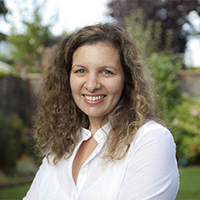
Lauren Kramer
Vancouver-based correspondent Lauren Kramer has written about the seafood industry for the past 15 years.
Tagged With
Related Posts
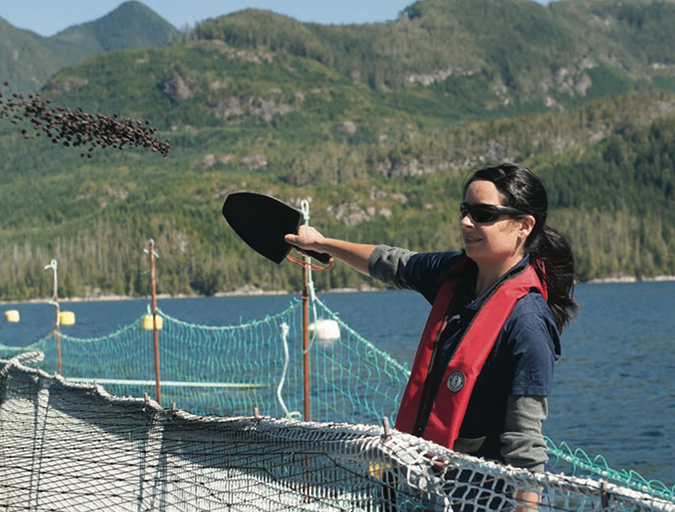
Responsibility
B.C. salmon farmers unveil sustainability report
The British Columbia Salmon Farmers Association releases its first annual Sustainability Progress Report as the Global Aquaculture Alliance hosts its GOAL conference in Vancouver, B.C. The group intends to share progress on environmental, social and economic impacts.
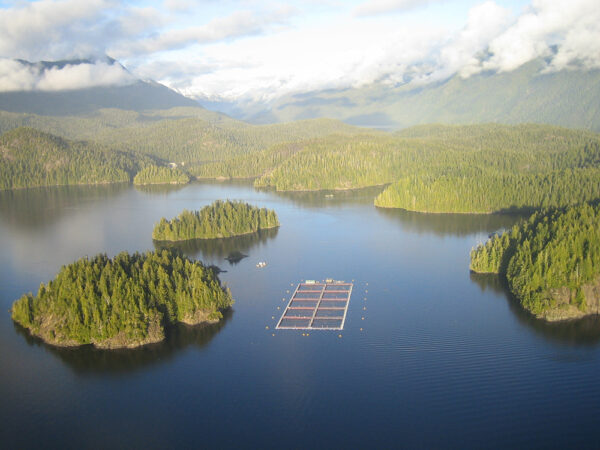
Intelligence
Canadian salmon farmers: ‘Leave us out of your shutdown’
The potential of a salmon-farming ban in Washington state is being monitored closely next door, in British Columbia, where many more salmon farms operate. But they’re not worried about a spillover effect.
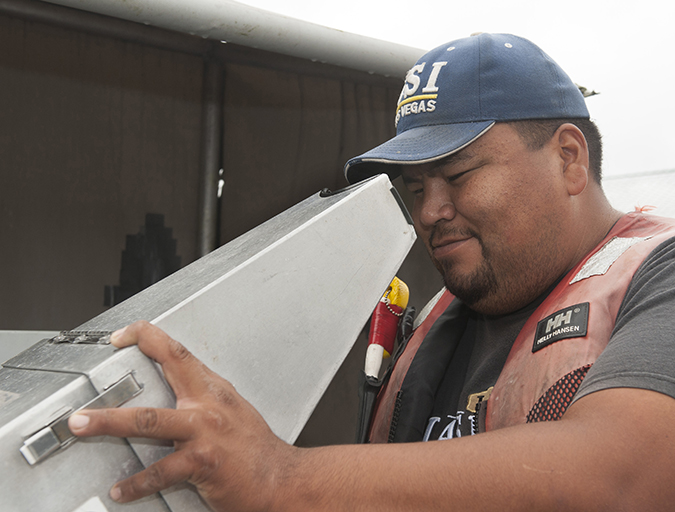
Responsibility
In Canada, salmon farmers building social license with First Nations
After some rocky times, ties between B.C. salmon farmers and First Nations, have improved in recent years. Band members report consistent employment, royalties and improved quality of life. “We need aquaculture around,” says one fishing company owner.
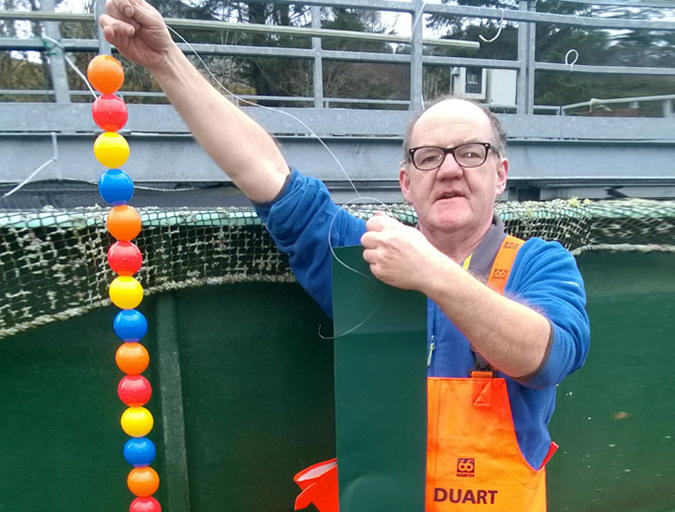
Health & Welfare
Time to play: Farmed fish respond to environment enrichment
Animal welfare on fish farms encompasses health, diet, water quality, husbandry, handling and slaughter. Add environment enrichment to the list, like a Scottish salmon company, which keeps its fish healthy by keeping them busy.


